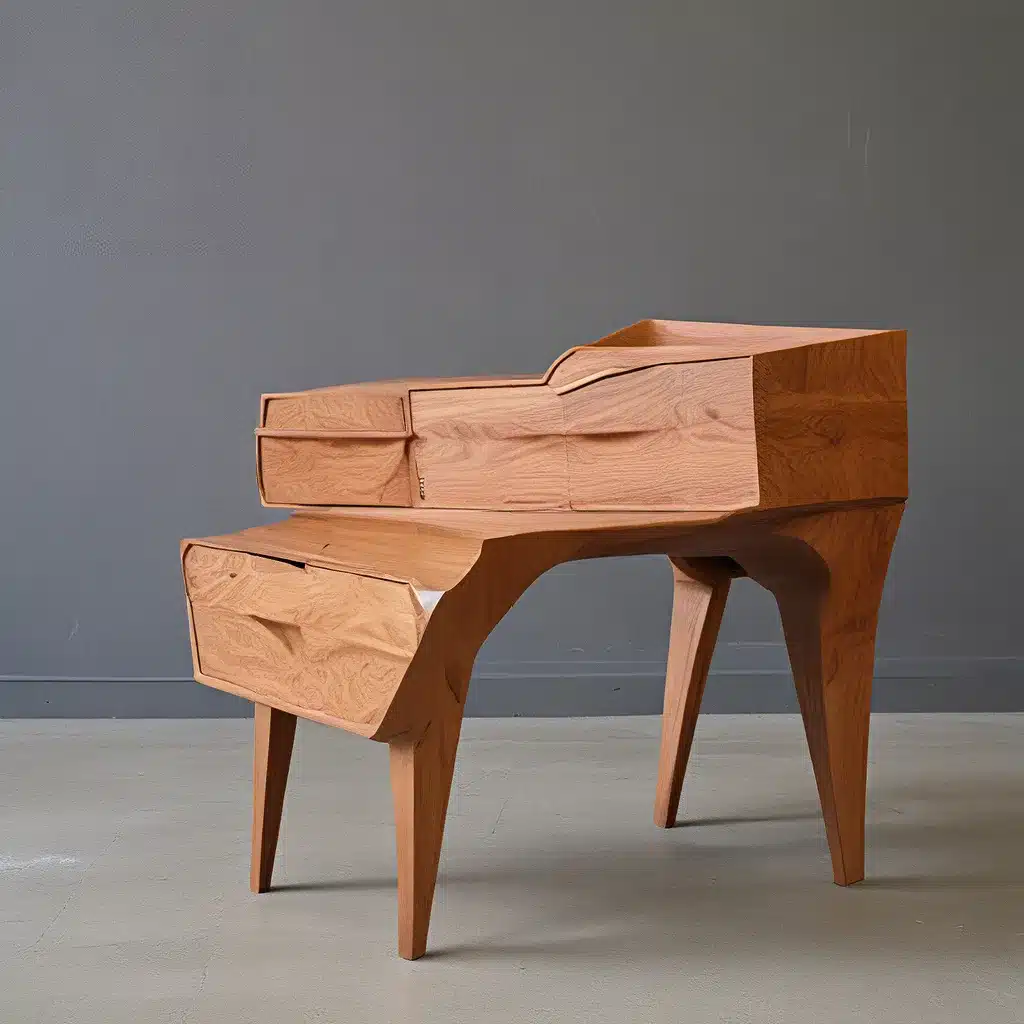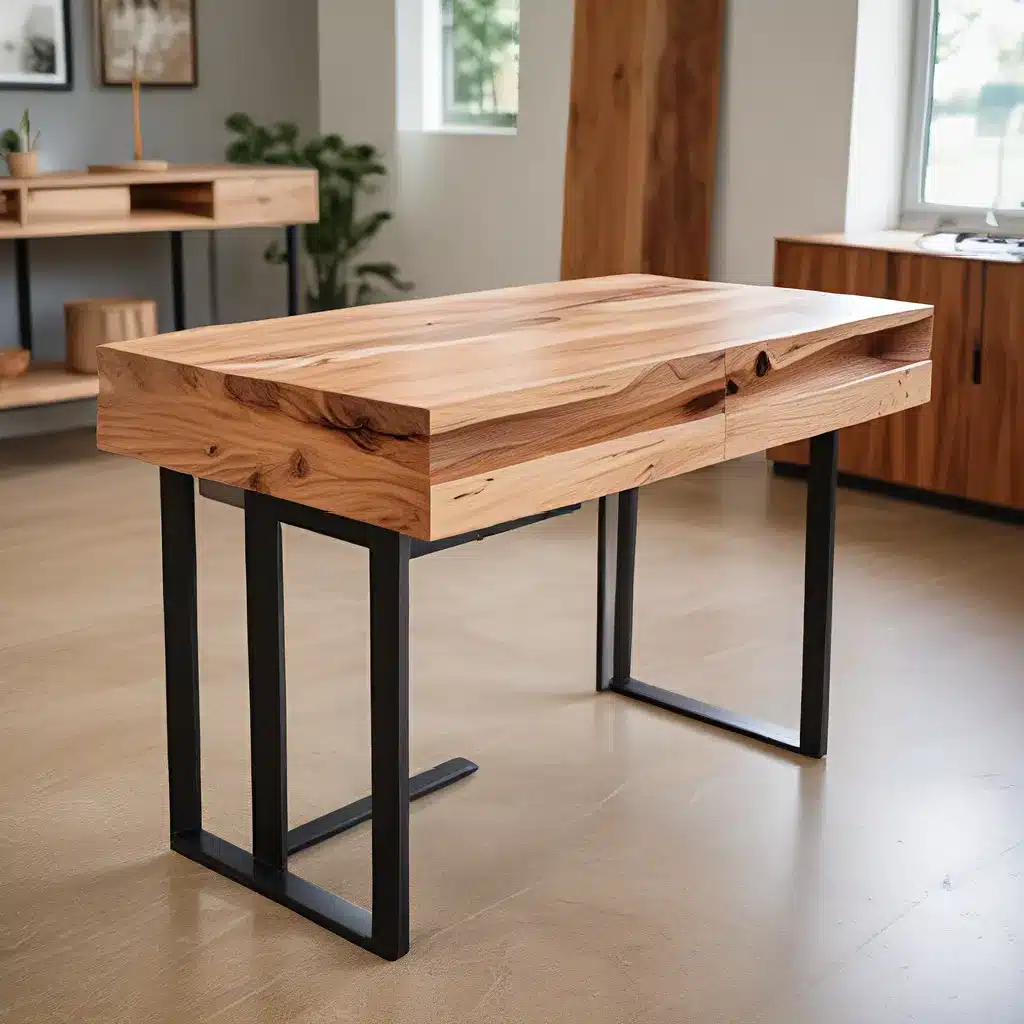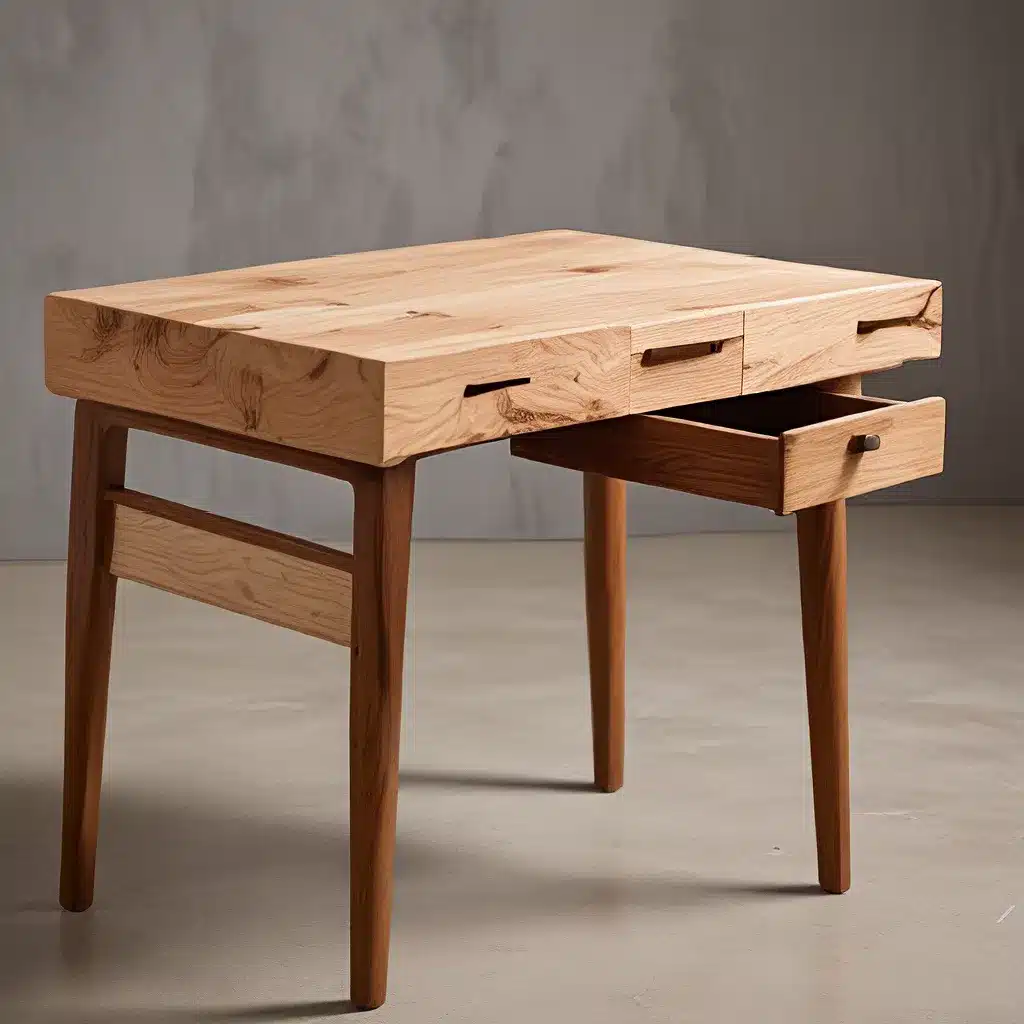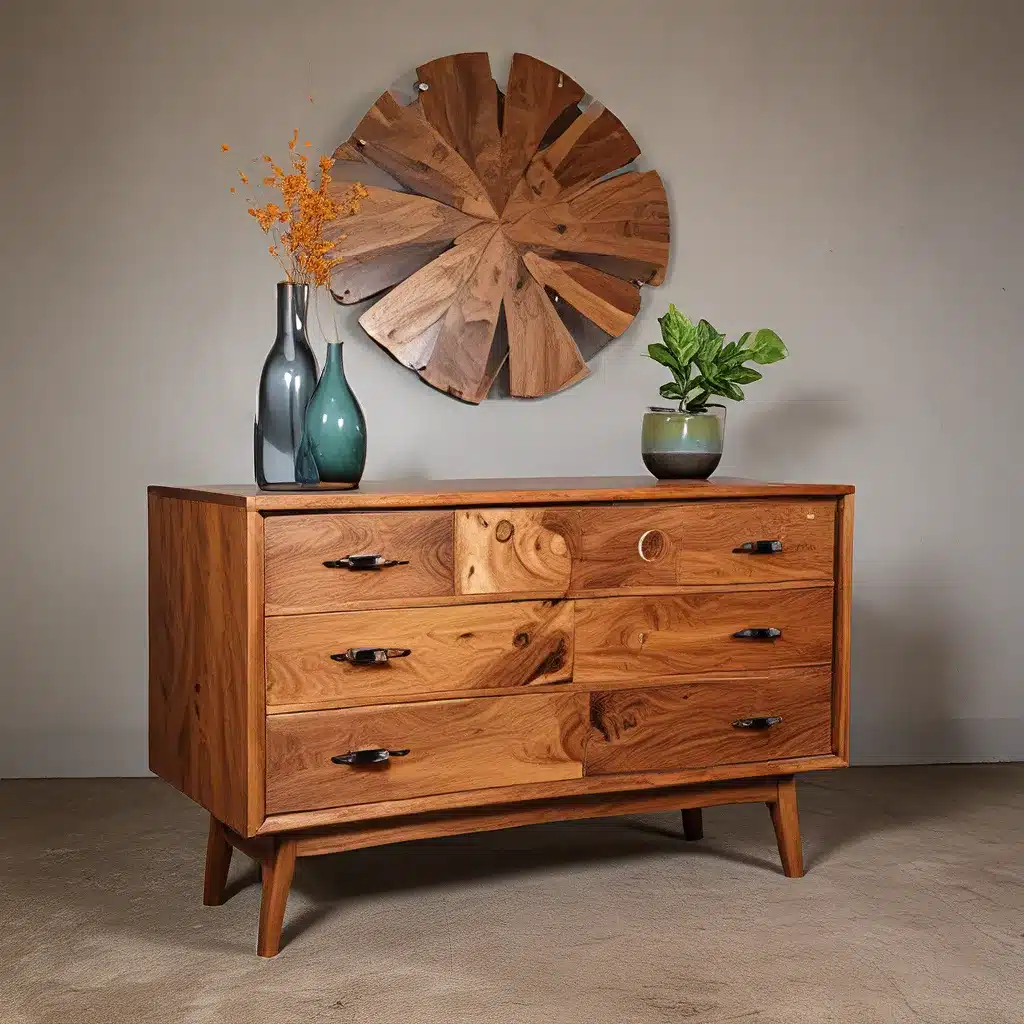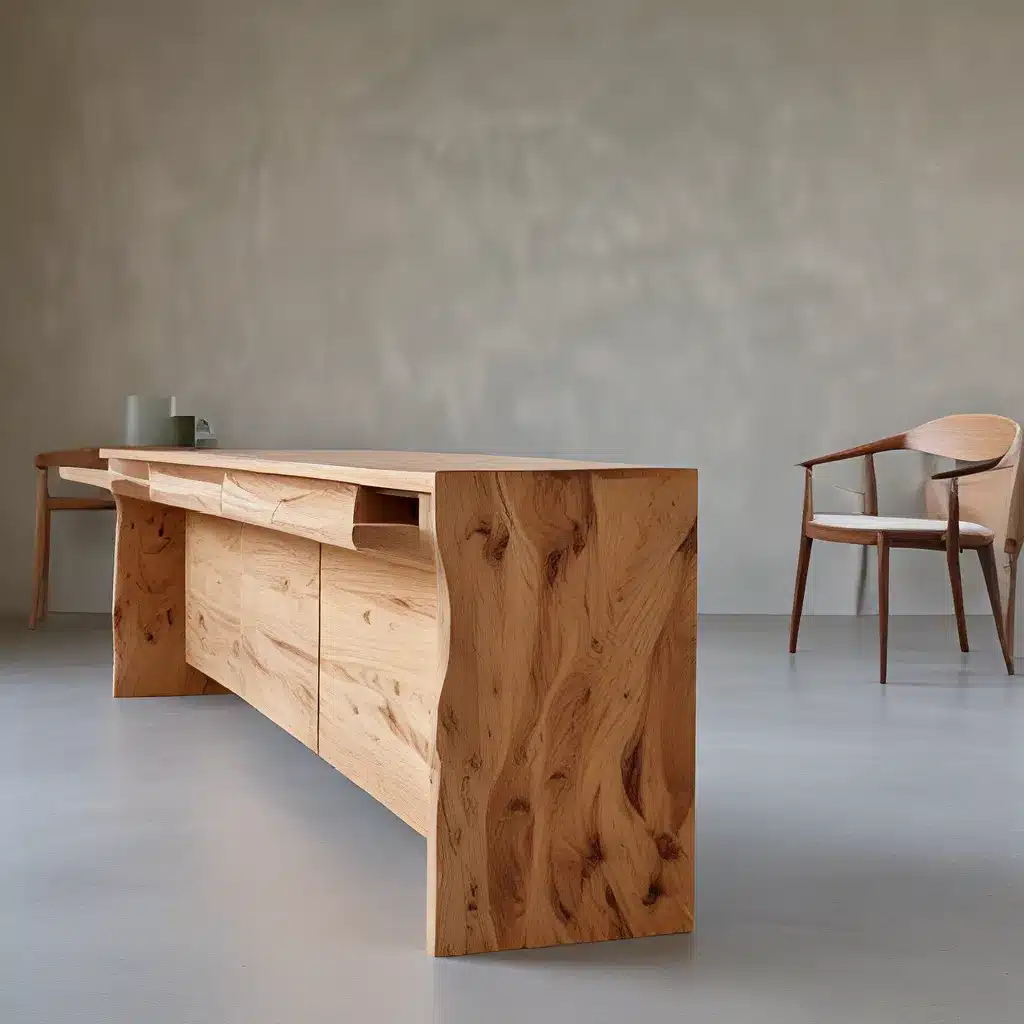
As I step into the showroom of Unfinished Furniture, I’m immediately struck by the sheer beauty and craftsmanship of the pieces on display. From the sleek lines of a modern dining table to the intricate carvings of a vintage armchair, each item seems to tell a story – a testament to the passion and expertise of the designers and makers behind them.
But what truly captivates me is the way these bespoke creations seamlessly blend form and function, while also embodying the principles of sustainable design. It’s a revelation that has me pondering the role of custom furniture in shaping a more eco-conscious future. After all, in a world where mass-produced, disposable furnishings have become the norm, the idea of investing in pieces that are built to last and minimize environmental impact seems almost revolutionary.
The Rise of Sustainable Design
As I delve deeper into the world of bespoke furniture, I can’t help but notice the growing emphasis on sustainable design – a movement that’s been gaining momentum in recent years. Luxury home design trends for 2024 suggest that this shift is no passing fad, but rather a fundamental shift in how we approach the creation and consumption of our living spaces.
“Sustainability in furniture design is transforming the industry by prioritizing eco-friendly materials, ethical manufacturing practices, and innovative design principles. This movement aims to reduce environmental impact while creating durable, timeless pieces that promote a healthier planet and support responsible consumer choices.”
The sustainable furniture movement, it seems, has emerged as a direct response to the pressing environmental and ethical concerns associated with traditional furniture production. Early advocates recognized the urgent need to rethink the way we design, manufacture, and use our furnishings – a realization that has only grown stronger as the impacts of climate change and resource depletion become increasingly apparent.
Bespoke Furniture: A Sustainable Solution
Now, as I wander through the showroom, I can’t help but feel a sense of excitement and optimism. Bespoke furniture, with its emphasis on quality, longevity, and responsible sourcing, appears to be at the very heart of this sustainable design revolution.
“By embracing the principles of sustainability in furniture design, we can create products that not only satisfy our aesthetic desires but also positively impact the environment. It’s a win-win scenario that speaks to the growing demand for more eco-conscious choices in the home.”
One of the key advantages of bespoke furniture lies in its commitment to using ethically sourced, environmentally-friendly materials. Whether it’s FSC-certified wood, responsibly harvested bamboo, or recycled metal and plastic, these custom-made pieces are designed to minimize their ecological footprint from the very beginning.
Sustainability in furniture design goes beyond just the materials, however. It also encompasses a holistic approach to manufacturing, focusing on reducing waste, enhancing energy efficiency, and utilizing eco-friendly production processes. By prioritizing these principles, bespoke furniture makers are not only creating beautiful and functional pieces, but also contributing to a more circular economy where resources are continuously reused and recycled.
Durability and Timelessness: The Hallmarks of Sustainable Design
But the true beauty of bespoke furniture, in my opinion, lies in its durability and timelessness. Unlike mass-produced items that often succumb to the whims of fleeting trends, these custom-made pieces are designed to stand the test of time, both in terms of their aesthetic appeal and their physical resilience.
“One of the core principles of sustainable outdoor furniture is durability and timelessness. Designing furniture to be both functional and aesthetically pleasing for many years reduces the need for frequent replacements. This longevity is a critical factor in sustainability in furniture design, as it minimizes waste and the consumption of resources needed to produce new items.”
By embracing this ethos of longevity, bespoke furniture makers are not only reducing the environmental impact of constant production and disposal, but also cultivating a deeper connection between the owner and their furnishings. These are pieces that become cherished heirlooms, passed down from generation to generation, rather than mere accessories that are quickly replaced.
The Power of Innovation and Collaboration
As I continue to explore the showroom, I can’t help but marvel at the sheer ingenuity and innovation that has gone into these sustainable bespoke creations. It’s a testament to the power of collaboration between designers, manufacturers, and environmental organizations – a synergy that is driving the industry forward and redefining the boundaries of what is possible in the realm of sustainable design.
“Innovation and collaboration are key drivers of sustainability in the furniture industry. Developing new materials and production techniques that reduce environmental impact is essential to creating sustainable outdoor furniture. Sustainability in furniture design relies heavily on these advancements to minimize ecological footprints.”
From the use of cutting-edge 3D printing technologies to the incorporation of advanced recycling methods, the furniture industry is constantly pushing the boundaries of what is sustainable. And as these innovations continue to unfold, I can’t help but feel a sense of excitement and anticipation for the future – a future where the line between beauty, functionality, and environmental responsibility becomes increasingly blurred.
Embracing the Future of Bespoke Furniture
As I reluctantly prepare to leave the showroom, I can’t help but feel a newfound appreciation for the role that bespoke furniture plays in shaping a more sustainable future. These custom-made creations, with their unwavering commitment to quality, longevity, and environmental responsibility, represent a powerful antidote to the disposable culture that has dominated the furniture industry for far too long.
“Embracing a circular economy in furniture design involves creating products that can be easily repaired, reused, or recycled – closing the loop and reducing waste. This approach is a fundamental aspect of what is sustainable furniture, ensuring that products have a minimal environmental footprint throughout their lifecycle.”
And as I look ahead, I can’t help but feel a sense of optimism and wonder. With advancements in technology, the growing emphasis on sustainable design, and the increasing demand for eco-conscious consumer choices, I believe that the future of bespoke furniture is brighter than ever. It’s a future where the beauty and functionality of our living spaces are inextricably linked to the health of our planet – a future that, with the help of visionary makers and designers, we can all work towards.
So, who knows what wonders await us in the years to come? One thing is certain: as I step out into the world, I’ll be keeping a keen eye on the ever-evolving landscape of bespoke furniture, eagerly awaiting the next wave of sustainable design that will shape the homes and lives of generations to come.




